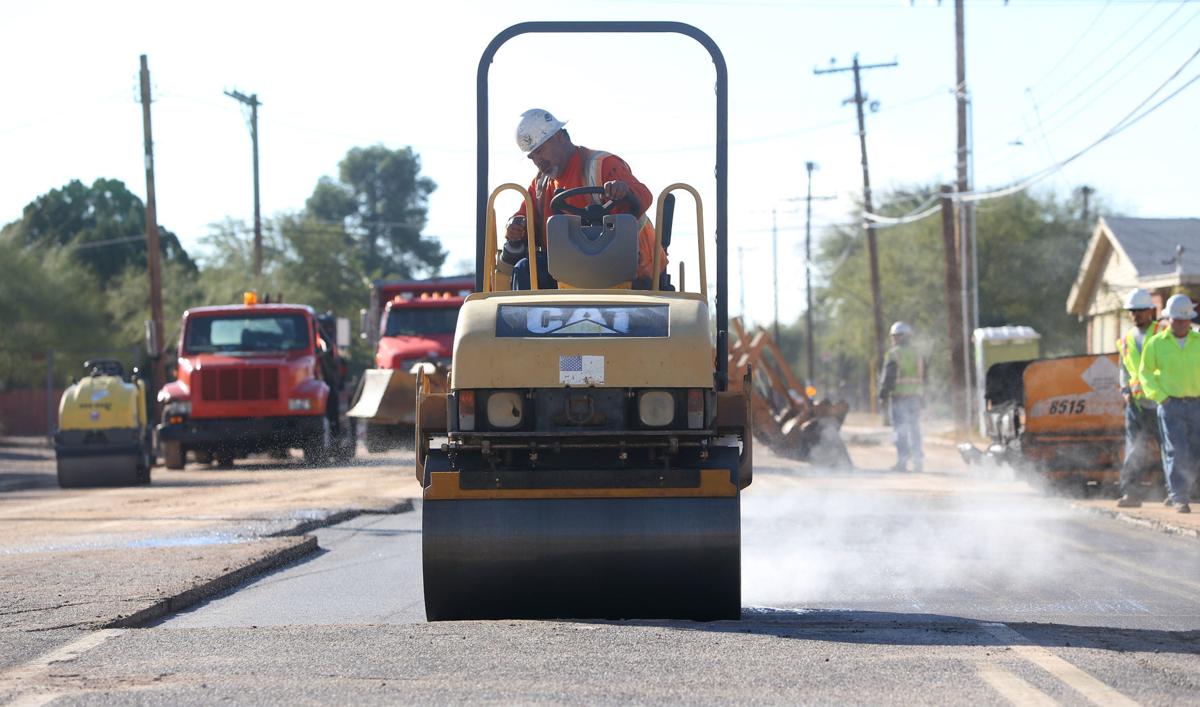When city voters approved a $100 million bond to fix city streets nearly six years ago, the bottom-line mandate was so simple it would fit on a bumper sticker.
Fix the worst roads first.
With a repair backlog estimated between $600 million and $700 million, many of those who backed Proposition 101 were just happy to see roads finally getting attention. The location mattered, but with $20 million in repairs every year, it was easy to envision that their least-favorite street would get fixed.
The $100 million bond, as well as a temporary, half-cent sales tax called Proposition 409 approved last year by voters that put another $100 million into Tucson roads, effectively doubled the number of roads that could be repaired.
Recently it has come to the attention of some that road-repair efforts were being concentrated primarily in the heart of the city. While those central streets are some of the oldest and most heavily used in all of Tucson, Councilwoman Regina Romero is claiming victory after voicing concerns that distribution of taxpayer dollars was not equitable.
At first it made sense, she said, saying it was her understanding that the worst roads would be fixed first in every ward.
“We were not told that most of the money was going to be concentrated in Ward 6,” she said.
Before Mayor Jonathan Roths-child and Romero spoke up, Ward 6 in midtown Tucson, for example, was slated to received $6.79 million in road repairs in the first year of funding. Romero’s west-side district was only going to get $1.2 million by comparison.
The decision on what to fix didn’t come from elected officials or city bureaucrats. Instead, Prop. 101 set up an independent commission. Composed of appointees from each ward office, the City Manager’s Office and the Mayor’s Office, the 2012 Bond Oversight Commission is the ultimate authority.
It receives input from staff, but the commission is free to make changes to proposals.
In a letter to the Bond Oversight Commission, Rothschild asked the commission to reconsider its priorities.
“If Propositions 409 and 101 provided sufficient funding to address all the needs of all our city streets, your task would be easy. Unfortunately, as you know, that is not the case,” Rothschild told the commission. “While I understand that the commission’s approach has been to select roads first based on condition, I encourage you also to consider the geographic distribution of the roads you select, with the goal of achieving equitable geographic distribution among all six city wards.”
The commission was persuaded, but not everyone is happy.
Councilman Steve Kozachik said voters backed a plan specifically designed to avoid political interference by elected officials.
The commission’s decision significantly cuts the number of lane miles that will be paved in midtown.
“We just demonstrated that the Bond Oversight Committee is independent, until we decide that it’s not. That’s a helluva message to send when you’re asking people to trust you with yet another tax increase. And it wasn’t just midtown that got screwed. It’s anybody who drives from one side of town to the other and uses the central city roads,” Kozachik said.
But Romero disagrees, saying she advocated not just for her ward.
“I wasn’t advocating just for Ward 1, I was advocating for everyone,” she said. “There are streets in (Ward 1) that have never been touched.”





